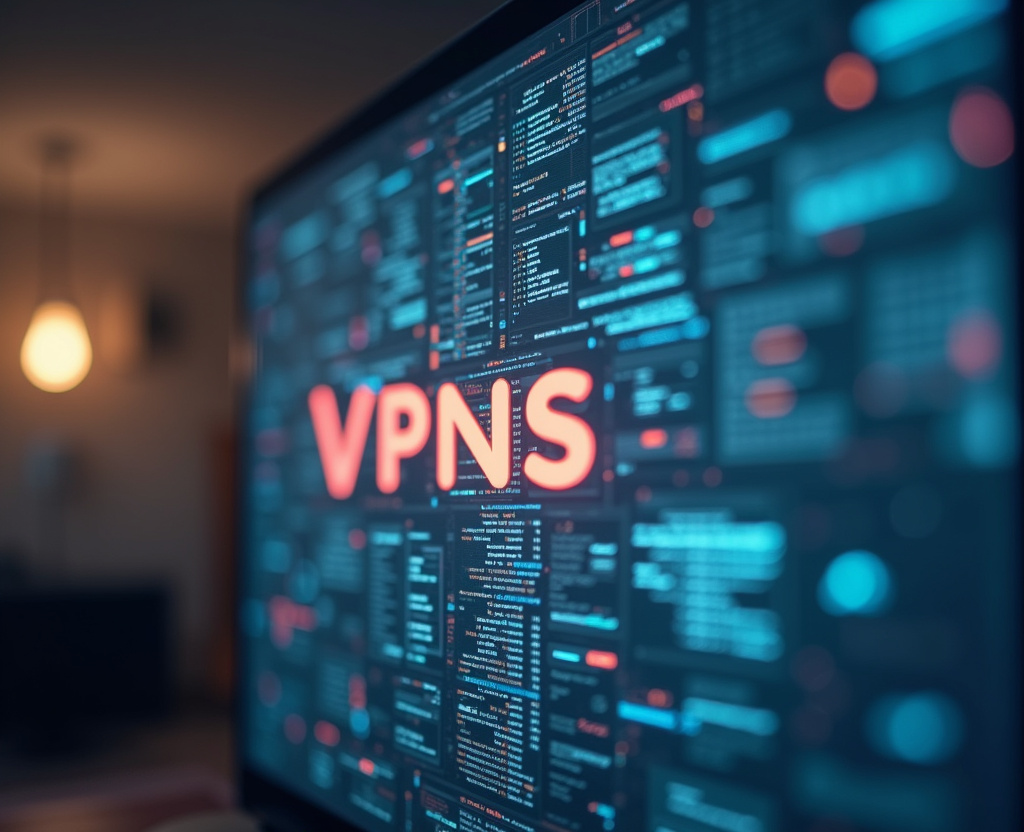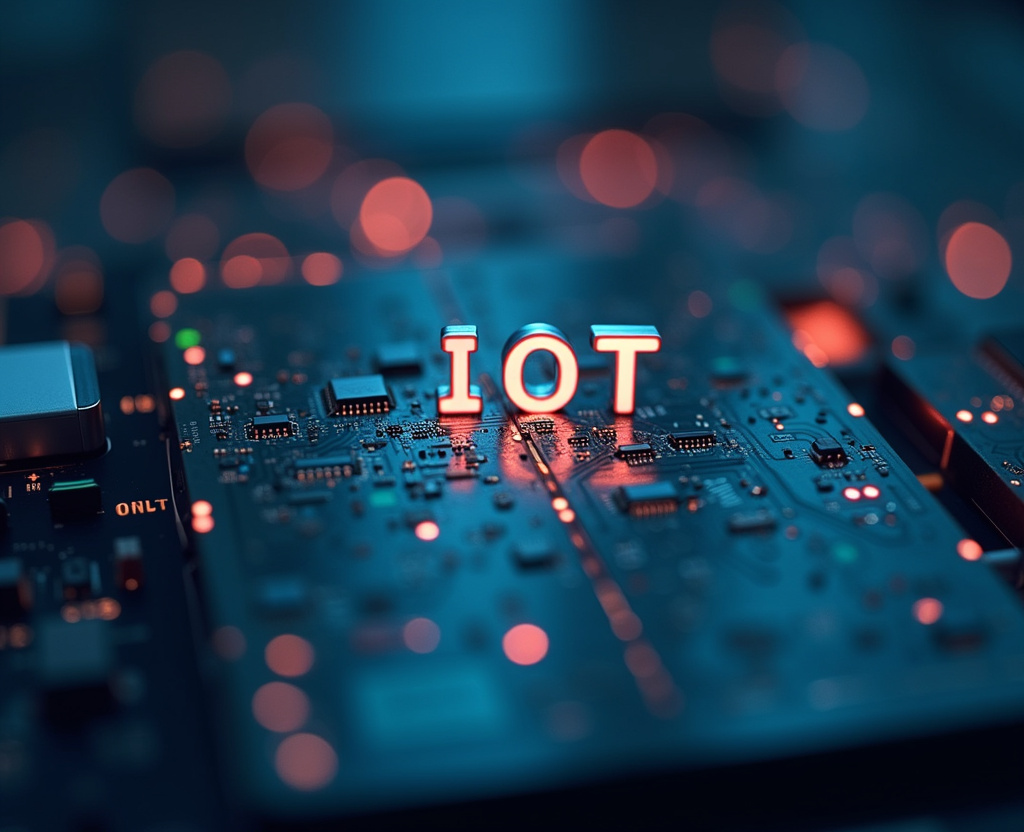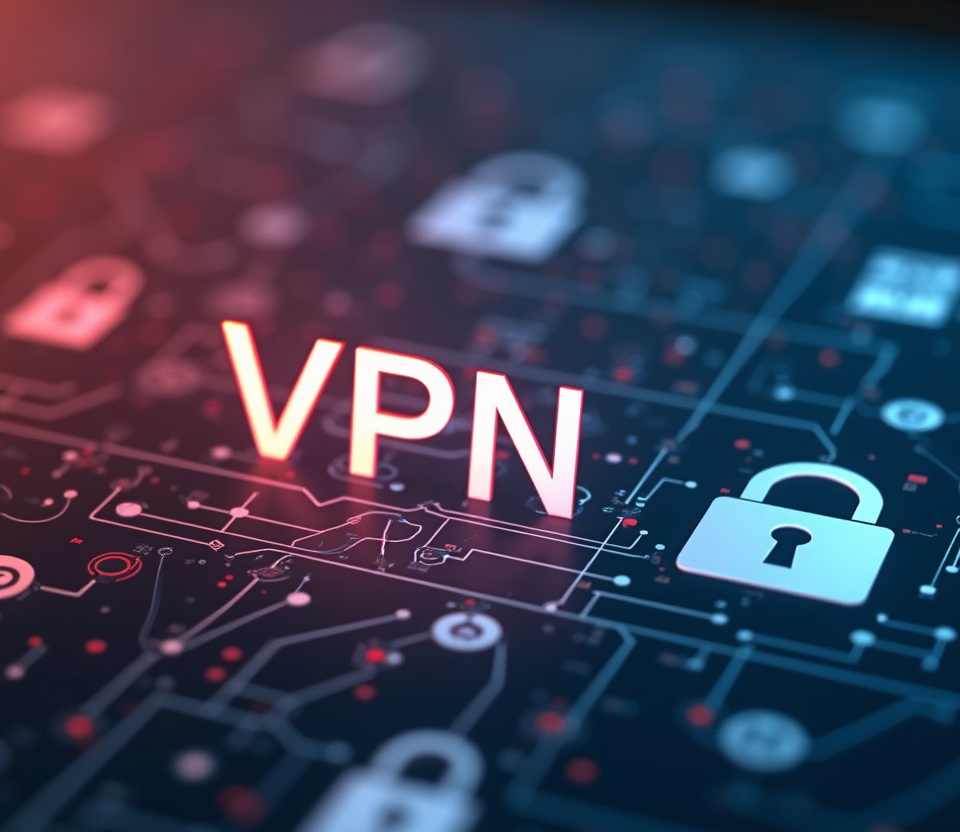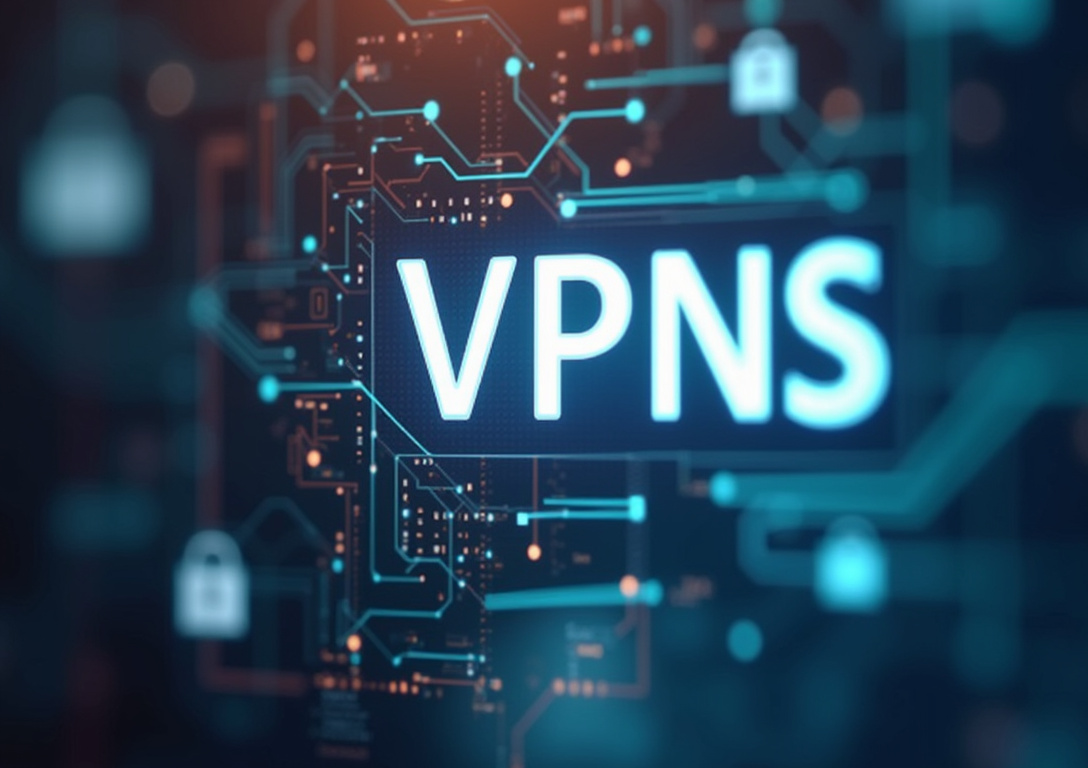VPNs for Home Security Systems: Safeguarding IoT Networks
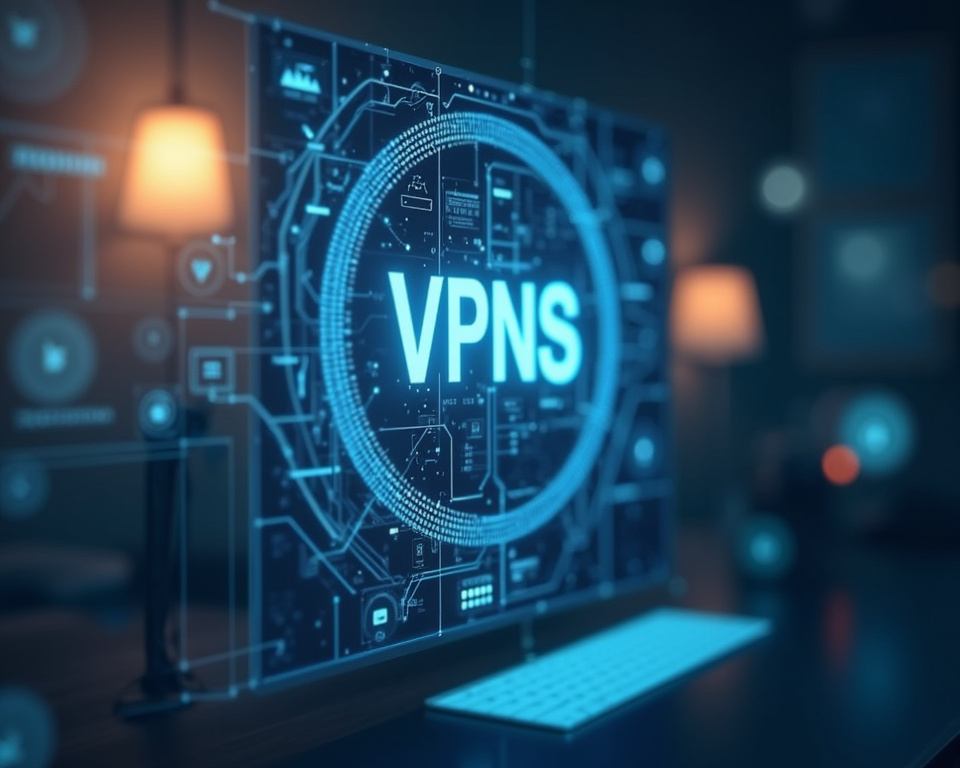
Table of Contents
VPNs for Home Security Systems: Safeguarding IoT Networks
We stand at the cusp of a technological revolution, one where the once-futuristic concept of the "smart home" has morphed into an everyday reality. Our residences are increasingly populated with an intricate web of interconnected devices, seamlessly interwoven into the fabric of our lives. From intelligent thermostats that anticipate our comfort needs to sophisticated security systems that monitor our surroundings, the Internet of Things (IoT) has ushered in an era of unprecedented convenience and automation.
However, this digital utopia comes with a hidden price: a heightened vulnerability to cyber threats. The very interconnectedness that defines the smart home also creates a complex network of potential entry points for malicious actors, making our homes prime targets for cyberattacks. This article delves into the crucial role of Virtual Private Networks (VPNs) in bolstering home security, specifically within the context of IoT ecosystems.
We will explore how a can act as a digital shield, safeguarding your personal data, protecting your smart devices, and ensuring the privacy of your online activities. The core of the problem lies in the nature of IoT devices themselves. Often designed with convenience and affordability as top priorities, security considerations frequently take a backseat.
Many smart devices are shipped with weak default passwords, rely on outdated software, and lack robust security protocols. This makes them easy targets for hackers who can exploit these vulnerabilities to gain access to your entire home network. Once inside, they can eavesdrop on your communications, steal sensitive data, or even remotely control your devices, turning your smart home into a surveillance nightmare.
Imagine a scenario where a hacker gains access to your smart security camera and uses it to monitor your movements inside your home. Or, consider the possibility of a cybercriminal manipulating your smart thermostat to drive up your energy bills. The potential consequences of a compromised smart home are far-reaching and can have a significant impact on your privacy, security, and financial well-being.
Addressing these vulnerabilities requires a multi-layered approach to security. While strong passwords, regular software updates, and firewalls are essential components of a comprehensive security strategy, they are often insufficient to protect against sophisticated cyberattacks. This is where the implementation of a becomes indispensable.
A VPN acts as a crucial intermediary between your smart devices and the internet, creating a secure, encrypted tunnel through which all data traffic flows. This encryption transforms your data into an unreadable format, rendering it useless to anyone who intercepts it. This means that even if a hacker manages to gain access to your network, they will be unable to decipher your personal information, such as video feeds from security cameras, audio recordings from smart speakers, or data transmitted by smart thermostats.
The protection afforded by a VPN extends beyond mere encryption. It also masks your IP address, which serves as your unique identifier on the internet. By routing your traffic through a VPN server, your actual IP address is concealed and replaced with the IP address of the VPN server.
This obfuscation makes it significantly more difficult for cybercriminals to track your online activity, identify your location, or target your network with specific attacks. Protecting your is not merely a matter of convenience; it is a fundamental requirement for maintaining a secure and private home environment in the digital age. As we become increasingly reliant on smart devices, the potential risks associated with cyberattacks will only continue to grow.
By implementing a , you can proactively safeguard your digital life, ensuring that your smart home remains a safe and secure haven for you and your family. This proactive approach fosters enhanced confidence, knowing your digital interactions and data streams are shielded against ever-evolving digital exploits. Ultimately, investing in a VPN is investing in your peace of mind.
IoT network security
The increasing popularity of smart home devices has inadvertently created a complex web of interconnected systems, each potentially serving as a point of entry for cyberattacks targeting your . Many smart devices, unfortunately, are designed with minimal security features, often relying on default passwords or outdated firmware. These shortcomings make them easy targets for hackers who can exploit these vulnerabilities to gain access to your entire home network.
Once inside, they can eavesdrop on your communications, steal sensitive data, or even control your devices remotely, turning your smart home into a surveillance nightmare. A effectively mitigates these risks by creating a secure barrier between your devices and the outside world. It encrypts all data transmitted between your smart devices and the internet, preventing hackers from intercepting and deciphering your personal information.
This encryption extends to all types of data, including video feeds from security cameras, audio recordings from smart speakers, and data transmitted by smart thermostats. The VPN ensures that even if a hacker manages to penetrate your network, they will be unable to access or understand the encrypted data. Furthermore, a VPN provides an additional layer of by masking your IP address.
This makes it more difficult for cybercriminals to identify and target your network. By routing your internet traffic through a VPN server, your actual IP address is concealed, replaced by the IP address of the VPN server. This prevents hackers from pinpointing your location or profiling your online activity, making it significantly more challenging for them to launch targeted attacks.
The importance of cannot be overstated in the context of smart homes. Many smart devices collect and transmit a vast amount of personal data, including your location, usage patterns, and daily routines. This data can be used to track your movements, predict your behavior, and even target you with personalized advertising.
Without the protection of a VPN, this data is vulnerable to interception by hackers and could be used for malicious purposes. A VPN safeguards your by encrypting all data transmissions, preventing hackers from eavesdropping on your online activity. It also masks your IP address, making it more difficult for websites and online services to track your location and collect your personal information.
By using a VPN, you can maintain control over your personal data and prevent it from being used in ways that you did not authorize. Setting up a requires careful consideration of your specific needs and the capabilities of your devices. Some routers offer built-in VPN functionality, allowing you to create a secure tunnel for your entire home network.
Alternatively, you can install VPN software on individual smart devices, providing targeted protection for your most sensitive devices. The optimal approach depends on your technical expertise and the security features of your devices. Evaluate your router's compatibility and processing power if considering a router-based VPN.
Older routers may experience performance degradation due to the encryption overhead. For individual devices, ensure the VPN software is compatible with the device's operating system and that it does not significantly impact battery life or performance. Moreover, consider the geographic location of VPN servers.
Choosing a server closer to your actual location typically results in faster connection speeds. However, for bypassing geo-restrictions or masking your location for privacy purposes, selecting a server in a different country may be necessary. In conclusion, a VPN is an essential tool for safeguarding your smart home from cyber threats.
By encrypting your data, masking your IP address, and providing an additional layer of security for your smart devices, a VPN significantly reduces the risk of data breaches, unauthorized access, and surveillance. Prioritizing VPN usage is a strategic move towards a safer and more secure smart home experience, acknowledging the balance between technological convenience and the crucial need for reliable cybersecurity in an interconnected world.
home security VPN
Selecting the appropriate type of is pivotal in ensuring robust . There are several options available, each offering different levels of protection and ease of implementation. One common approach is to install VPN software directly on your router.
This creates a network-wide VPN, encrypting all traffic that passes through the router, effectively protecting all connected devices on your home network, including smart TVs, gaming consoles, and of course, your various smart home devices. This method offers a comprehensive security solution but requires a router that supports VPN functionality. Some routers come with built-in VPN servers, allowing you to easily configure a VPN connection.
Others may require you to flash custom firmware, such as DD-WRT or Tomato, to enable VPN support. Flashing custom firmware can be a complex process and may void your router's warranty, so proceed with caution. Ensure your chosen router has sufficient processing power to handle the encryption overhead of the VPN.
Older or less powerful routers may experience performance degradation, leading to slower internet speeds. Another option is to install VPN software directly on individual smart devices. This approach provides targeted protection for your most sensitive devices, such as security cameras, smart locks, and personal computers.
However, it can be more time-consuming to set up and manage, as you need to install and configure the VPN software on each device separately. Not all smart devices support VPN software directly. Some devices may require you to configure a VPN connection through their settings, while others may not support VPNs at all.
Check the compatibility of your smart devices before implementing this approach. Furthermore, the implementation options can vary depending on whether using specific brand solutions like software-only solutions, hardware solutions and VPNs on a router to protect all devices. Consider your tech savviness and the time commitment you are willing to invest.
When choosing a , it's essential to select a reputable provider that offers strong encryption protocols, a strict no-logs policy, and a wide selection of servers. Encryption protocols like AES-256 provide robust protection against eavesdropping, ensuring that your data remains secure. A strict no-logs policy means that the VPN provider does not track or store your online activity, protecting your privacy.
A wide selection of servers allows you to connect to servers in different geographic locations, bypassing geo-restrictions and enhancing your anonymity. Evaluate the VPN provider's reputation and read user reviews before making a decision. Look for providers with a proven track record of security and privacy.
Be wary of free VPN services, as they often have limitations on bandwidth and speed, and some may even collect and sell your data. The best option is to opt for a paid VPN service that offers robust security features and reliable performance. Beyond the technical aspects, consider the user interface and ease of use of the VPN software.
A user-friendly interface makes it easier to connect to the VPN, manage your settings, and troubleshoot any issues. Choose a VPN provider that offers 24/7 customer support, so you can get help when you need it. Remember that a is just one layer of a comprehensive security strategy.
It's essential to also use strong passwords, keep your software up to date, and be cautious of phishing scams. By combining a VPN with other security measures, you can significantly reduce the risk of cyberattacks and protect your smart home from prying eyes. Securing your smart home is an ongoing process.
Stay informed about the latest security threats and vulnerabilities, and adapt your security measures accordingly. Consider consulting with IT or cybersecurity professionals to help you establish an effective security plan that suits your needs.
VPN for smart homes
Beyond the fundamental security benefits, implementing a offers a range of additional advantages that enhance the overall user experience and further protect your . One notable benefit is the ability to bypass geo-restrictions, granting you access to content and services that might be unavailable in your region. Many streaming services, for instance, offer different libraries of content depending on your location.
By connecting to a VPN server in a different country, you can unlock access to a wider selection of movies, TV shows, and other media. This can be particularly useful if you're traveling abroad and want to access content from your home country. Similarly, some smart home devices may have region-locked features or services.
A VPN can help you circumvent these restrictions, allowing you to fully utilize the capabilities of your devices regardless of your location. However, it's important to note that some streaming services and smart home device manufacturers actively try to block VPN usage. Before relying on a VPN to bypass geo-restrictions, check to see if it's compatible with the specific content or service you want to access.
Another advantage of using a VPN is the ability to enhance your anonymity online. By masking your IP address, a VPN makes it more difficult for websites and online services to track your browsing activity. This can be particularly useful if you're concerned about your privacy or if you want to prevent targeted advertising.
While a VPN can't guarantee complete anonymity, it adds a significant layer of protection against online tracking. Additionally, a VPN can protect you from man-in-the-middle attacks, where hackers intercept your internet traffic to steal your personal information. This type of attack is more common on public Wi-Fi networks, which are often unsecured.
By connecting to a VPN server before using public Wi-Fi, you can encrypt your traffic and prevent hackers from eavesdropping on your communications. This is crucial for protecting your when traveling or working remotely. Consider those IoT devices that directly use your network, encrypting your data with a VPN makes it harder for anyone to intercept the information.
For example, imagine using a smart lock while you’re away on vacation. The VPN shields the signals transmitted between your phone and your connected smart devices while away, such as unlocking the door for a guest or resetting the security system. This is very important because if these signals are monitored, someone would be able to steal them and replay the sequence to then unlawfully enter your home.
Moreover, a VPN can help you avoid censorship and surveillance. In some countries, the government actively monitors internet traffic and blocks access to certain websites and services. A VPN can circumvent these restrictions, allowing you to access information freely and communicate securely.
This can be particularly important for journalists, activists, and anyone who values freedom of expression. However, it's important to note that using a VPN to bypass censorship may be illegal in some countries. Be sure to check the laws in your jurisdiction before using a VPN for this purpose.
Choosing a is not just about protecting your smart home from cyber threats. It's also about enhancing your privacy, accessing content freely, and maintaining control over your online activity. The benefits of a VPN extend far beyond basic security, making it an indispensable tool for anyone who values their digital freedom and privacy.
The proper implementation of a VPN offers a harmonious blend of security and convenience.
home security VPN
In conclusion, the integration of a into your smart home ecosystem is no longer a luxury but a necessity for ensuring robust and safeguarding your . The proliferation of IoT devices, while offering unprecedented convenience and automation, has also created a complex web of vulnerabilities that can be exploited by cybercriminals. Protecting your smart home from these threats requires a multi-layered approach, and a VPN serves as a critical component of this strategy.
By encrypting your data, masking your IP address, and preventing unauthorized access to your devices, a VPN significantly reduces the risk of data breaches, surveillance, and other cyberattacks. It's an investment in your peace of mind, knowing that your digital life is shielded from the ever-growing risks of the digital landscape. Choosing the right VPN provider is crucial.
Look for providers with a proven track record of security and privacy, strong encryption protocols, a strict no-logs policy, and a wide selection of servers. Avoid free VPN services, as they often come with limitations and may even compromise your privacy. Consider the different VPN setup options available, such as installing VPN software on your router or on individual smart devices, and choose the approach that best suits your needs and technical expertise.
Remember that a VPN is just one piece of the puzzle. It's essential to also use strong passwords, keep your software up to date, and be cautious of phishing scams. By combining a VPN with other security measures, you can create a more secure and resilient smart home environment.
Furthermore, stay informed about the latest security threats and vulnerabilities. The cybersecurity landscape is constantly evolving, and new threats emerge regularly. Keep your VPN software up to date to ensure that you have the latest security patches and features; the same is true for any of your smart devices firmware.
Consider subscribing to cybersecurity news and alerts to stay informed about the latest risks and how to protect yourself. Finally, think of your smart home security as an ongoing process, not a one-time fix. Regularly review your security settings, assess your vulnerabilities, and adapt your security measures as needed.
With vigilance and proactive measures, you can protect your smart home and enjoy the benefits of IoT technology without compromising your security or privacy. The decision to implement a represents a commitment to responsible technology adoption, recognizing that convenience should never come at the expense of security. In a world where our homes are increasingly connected, protecting our digital lives is more important than ever.
Prioritizing alongside VPN usage is what sets apart tech-savvy users from passive ones. Take control of your smart home security. A VPN is an essential tool.
Prioritize research and implementation. Secure your smart home with VPNs!
Stay Updated
Get the latest VPN news, tips, and exclusive deals to your inbox.
